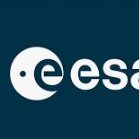Members Can Post Anonymously On This Site
JUICE Pre-Launch Press Briefing
-
Similar Topics
-
By European Space Agency
Video: 00:42:11 Watch the latest updates on ESA’s Fly! Feasibility Study with Daniel Neuenschwander, ESA Director of Human and Robotic Exploration, John McFall, Member of the ESA Astronaut Reserve & Fly! Subject Matter Expert, Jerome Reineix, Fly! Study Manager, and Alessandro Alcibiade, Fly! Flight Surgeon.
Announced in November 2022 during the Ministerial Council held in Paris, France, this unique and groundbreaking study is aimed at understanding and challenging the limitations posed by physical disabilities to human spaceflight. Concluded in late 2024, the Fly! Feasibility Study successfully demonstrated it is technically feasible to fly someone with a physical disability, like John’s, on a six-month mission to the International Space Station as a fully integrated crew member. It underpinned the desire to ensure that space exploration is not limited by physical constraints and that every individual can contribute to our collective understanding of the cosmos and of the benefits of spaceflight for life on Earth.
The end of the feasibility study marks the start of the next phase: Fly! Mission Ready . This is an essential step to carry out the first long-term mission for an astronaut with a physical disability.
View the full article
-
By European Space Agency
Video: 01:22:54 Watch the replay of ESA's start-of-the-year press briefing looking ahead to 2025.
View the full article
-
By European Space Agency
Video: 00:56:21 Watch the replay of the Sentinel-1C pre-launch media briefing for detailed information on the mission which will be launched aboard a Vega-C rocket no earlier than 4 December at 18:20 local time (22:20 CET) from Europe’s Spaceport in Kourou, French Guiana.
View the full article
-
By European Space Agency
Watch live: Sentinel-1C pre-launch media briefing
Follow the media briefing today at 15:00 CET on ESA Web TV
View the full article
-
By European Space Agency
Video: 00:20:48 ESA’s Jupiter Icy Moons Explorer (Juice), is on an epic eight-year journey to Jupiter. This first episode of ‘The journey of Juice’ tells the story of Juice’s first months in space, from its launch on 14 April 2023 to its lunar-Earth gravity assist (LEGA for short) in August 2024. This flyby was not only the first double gravity assist manoeuvre of its kind, it was also a perfect opportunity to test out the spacecraft’s cameras and science instruments.
In this episode, Juice’s Mission Manager Nicolas Altobelli explains how the spacecraft will become the first ever human-made machine to orbit a moon of another planet, in this case Jupiter’s largest moon Ganymede.
You’ll also hear from Claire Vallat and Marc Costa at the European Space Astronomy Centre (ESAC) near Madrid, Spain. Juice will perform incredibly complex measurements once it reaches Jupiter, and the Science Operations team at ESAC is making sure we get the most out of every instrument.
Meanwhile, the Flight Control team at the European Space Operations Centre (ESOC) in Darmstadt, Germany, makes sure Juice is and stays on the right path. This episode shows what happened ‘behind the scenes’ before and during the lunar-Earth flyby, and stars Ignacio Tanco, Angela Dietz and members of the Juice Flight Control team as they do what they do best.
Finally, we highlight the ESA tracking station network (Estrack), another crucial component for Juice. Maintenance and Operations Engineer Belén Goméz gives a tour of the facility at Cebreros.
Following the very successful lunar-Earth flyby, Juice is now on its way to planet Venus for its next flyby. On 31 August 2025, this flyby will give Juice its second gravity boost. Tune back in next year for episode two of this series!
This series follows on from ‘The making of Juice’ series, which covered the planning, testing and launch of this once-in-a-generation mission.
View the full article
-
-
Check out these Videos


Recommended Posts
Join the conversation
You can post now and register later. If you have an account, sign in now to post with your account.
Note: Your post will require moderator approval before it will be visible.